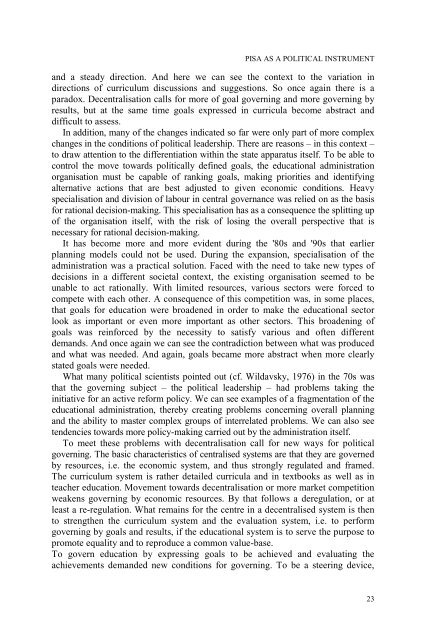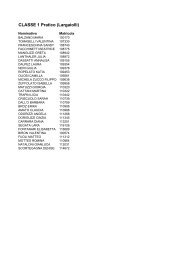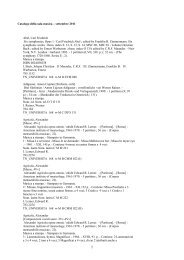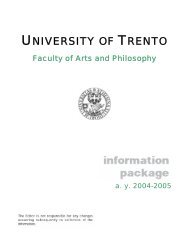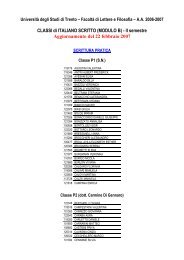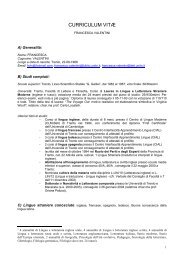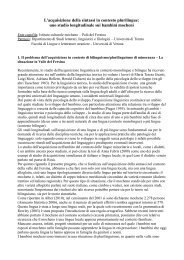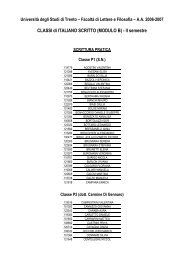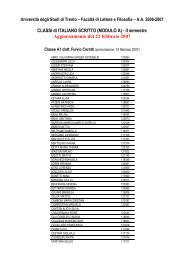PISA Under Examination - Comparative Education Society in ...
PISA Under Examination - Comparative Education Society in ...
PISA Under Examination - Comparative Education Society in ...
Create successful ePaper yourself
Turn your PDF publications into a flip-book with our unique Google optimized e-Paper software.
<strong>PISA</strong> AS A POLITICAL INSTRUMENT<br />
and a steady direction. And here we can see the context to the variation <strong>in</strong><br />
directions of curriculum discussions and suggestions. So once aga<strong>in</strong> there is a<br />
paradox. Decentralisation calls for more of goal govern<strong>in</strong>g and more govern<strong>in</strong>g by<br />
results, but at the same time goals expressed <strong>in</strong> curricula become abstract and<br />
difficult to assess.<br />
In addition, many of the changes <strong>in</strong>dicated so far were only part of more complex<br />
changes <strong>in</strong> the conditions of political leadership. There are reasons – <strong>in</strong> this context –<br />
to draw attention to the differentiation with<strong>in</strong> the state apparatus itself. To be able to<br />
control the move towards politically def<strong>in</strong>ed goals, the educational adm<strong>in</strong>istration<br />
organisation must be capable of rank<strong>in</strong>g goals, mak<strong>in</strong>g priorities and identify<strong>in</strong>g<br />
alternative actions that are best adjusted to given economic conditions. Heavy<br />
specialisation and division of labour <strong>in</strong> central governance was relied on as the basis<br />
for rational decision-mak<strong>in</strong>g. This specialisation has as a consequence the splitt<strong>in</strong>g up<br />
of the organisation itself, with the risk of los<strong>in</strong>g the overall perspective that is<br />
necessary for rational decision-mak<strong>in</strong>g.<br />
It has become more and more evident dur<strong>in</strong>g the '80s and '90s that earlier<br />
plann<strong>in</strong>g models could not be used. Dur<strong>in</strong>g the expansion, specialisation of the<br />
adm<strong>in</strong>istration was a practical solution. Faced with the need to take new types of<br />
decisions <strong>in</strong> a different societal context, the exist<strong>in</strong>g organisation seemed to be<br />
unable to act rationally. With limited resources, various sectors were forced to<br />
compete with each other. A consequence of this competition was, <strong>in</strong> some places,<br />
that goals for education were broadened <strong>in</strong> order to make the educational sector<br />
look as important or even more important as other sectors. This broaden<strong>in</strong>g of<br />
goals was re<strong>in</strong>forced by the necessity to satisfy various and often different<br />
demands. And once aga<strong>in</strong> we can see the contradiction between what was produced<br />
and what was needed. And aga<strong>in</strong>, goals became more abstract when more clearly<br />
stated goals were needed.<br />
What many political scientists po<strong>in</strong>ted out (cf. Wildavsky, 1976) <strong>in</strong> the 70s was<br />
that the govern<strong>in</strong>g subject – the political leadership – had problems tak<strong>in</strong>g the<br />
<strong>in</strong>itiative for an active reform policy. We can see examples of a fragmentation of the<br />
educational adm<strong>in</strong>istration, thereby creat<strong>in</strong>g problems concern<strong>in</strong>g overall plann<strong>in</strong>g<br />
and the ability to master complex groups of <strong>in</strong>terrelated problems. We can also see<br />
tendencies towards more policy-mak<strong>in</strong>g carried out by the adm<strong>in</strong>istration itself.<br />
To meet these problems with decentralisation call for new ways for political<br />
govern<strong>in</strong>g. The basic characteristics of centralised systems are that they are governed<br />
by resources, i.e. the economic system, and thus strongly regulated and framed.<br />
The curriculum system is rather detailed curricula and <strong>in</strong> textbooks as well as <strong>in</strong><br />
teacher education. Movement towards decentralisation or more market competition<br />
weakens govern<strong>in</strong>g by economic resources. By that follows a deregulation, or at<br />
least a re-regulation. What rema<strong>in</strong>s for the centre <strong>in</strong> a decentralised system is then<br />
to strengthen the curriculum system and the evaluation system, i.e. to perform<br />
govern<strong>in</strong>g by goals and results, if the educational system is to serve the purpose to<br />
promote equality and to reproduce a common value-base.<br />
To govern education by express<strong>in</strong>g goals to be achieved and evaluat<strong>in</strong>g the<br />
achievements demanded new conditions for govern<strong>in</strong>g. To be a steer<strong>in</strong>g device,<br />
23


